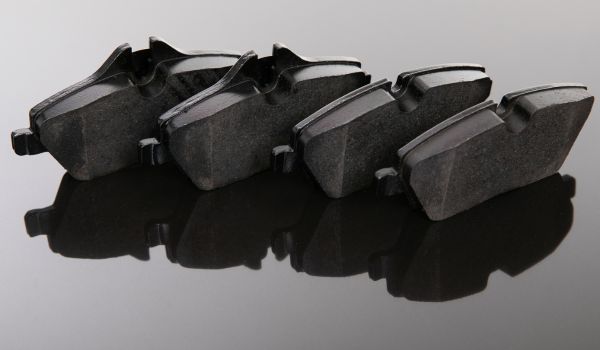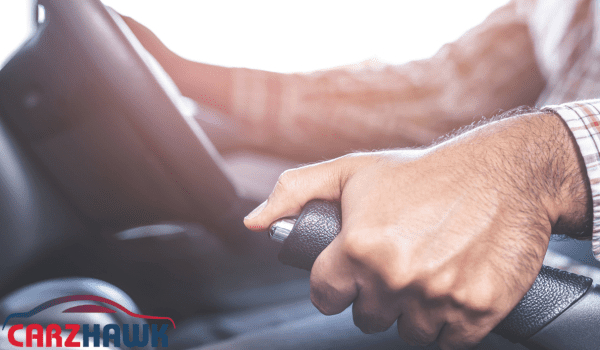The brakes don’t work easily, and you hear a loud “whooshing sound.” This strange sound means there is a problem with your brakes.
So far, your car may still be able to brake regularly, but ignoring this warning sign is a bad idea. What might be making the whooshing or hissing sound when we step on the brakes?
What Does a “Whooshing” Sound Mean?
This strange noise starts as a faint hiss when you press the brake button for the first time. Instead of the usual rubbing sound of pads against the rotor. As you drive farther, though, it changes into a louder, rushing, empty tone that sounds like wind blowing across the opening of a bottle.
The vague “whoosh” sound is heard when mild pressure is put on the brakes. Which is more noticeable at highway speeds.
At the same time, stopping feels spongier, and the pedal has to go down further to have the same effect of slowing down. Uncomfortably, the loud noise sounds like air escaping from somewhere in the important brake system. Brakes shouldn’t wheeze and whoosh; they should sound like a clean set of parts slowing down your car.
What Could Be Making That Whooshing Sound?
1: Air in the Brake Lines
Air in the brake lines is usually nothing to worry about at first. But if the whoosh comes and goes, this is probably what’s going on. You can finally get rid of the air in the lines by pumping the brakes. But the brakes will feel spongy.
Somehow, though, the air get in, either because of a leak, a drop in the fluid level, or late service. Now, moisture and brake fluid contaminants can also get in and cause rust, which makes the system work less well over time.
Adding more fluid and flowing lines to get rid of air pockets fixes the problem for now, but keep an eye on how well it fades.
2: Brake Pads that are worn out
If your brakes aren’t working as well as they use to, they may be because the pads are too thin to connect properly with the wheel. You may also hear loud squealing sounds when you brake. This makes room for air holes between the parts, which is what makes the whooshing sound.
This means that the brake pads need to be changed right now. Damage to the brakes and calipers could happen if the pads are at or above the minimum thickness level. This will cost a lot more to fix.
3: Leak in the vacuum booster
When the engine pressure helps, the brake booster makes the pedal force stronger. A broken frame or internal diaphragm stops the vacuum from building up properly so that hydraulic pressure can be applied.
Then, stopping depends on leg strength alone, which takes a lot of work and a rush of air. Master cylinder seals, lines, or fluid leaks can also cause the hissing sound. Get these brake parts checked out and the cause of the leak fixed right away.
Getting to the Root Cause
It’s important to look at the details of the whooshing sound carefully and when it happens in order to find the cause. Follow these steps for inspection:
Checking out visually
- Check the amount of the brake fluid reservoir in the master cylinder.
- Look for stains or wet spots that could mean leaks in the callipers, brake lines, pipes, or under the car.
- Look at the pads and rotors for cracks, uneven patina, or signs of overheating, such as heavy wear.
- Check the brake parts for damage or rust on the outside.
Check how the braking system works.
- Pump the pump to see if it feels spongy or sinks, meaning air or fluid is loss.
- Does the pedal need to move further to engage? Does it take more pressure? This means the pads are getting thin.
- To separate the sound from the hydraulic system, try using the parking brake by itself.
Do not Play Music While Driving
- Help you find the location by having someone press the brake pedal hard while you listen under the hood.
- Is the noise coming from one wheel area or the whole system?
- Does the sound only happen when the pedal is pressed halfway or all the way down? When the driving wheel is in certain positions?
Look at changes in performance.
- Does the car need more space to stop?
- Is it stopping unevenly, pulling to the left or right, or pulsing?
- Does the whooshing sound come with any smells or sounds?
When to Get Help from a Professional
Small amounts of air in the lines might sometimes get rid of themselves, but it’s better to be safe than sorry when there are problems with the brake system. Any parts that can leak pressure, like booster diaphragms, master cylinder seals, and so on, need special tools and training that you can’t get by yourself.
Let a professional mechanic check if you’re picking up any troublesome patterns, such as a noise that only happens when you press the brake button partway or a noise that gets louder when you turn in one direction or when the car is stopping and pulling to the side.
Also, have them check the state of the rotors because worn pads can be a sign of bigger problems to come. Remember that every time you drive, your brakes keep you from getting into an accident that could kill you. Allowing wear to continue past what the maker recommends, going with leaks, or ignoring strange sounds all raise the chance that the brakes will fail in the future.
In the long run, it will save you money to get a diagnostic check as soon as you notice a problem. If you catch small leaks early, you might only need new seals instead of replacing the whole master cylinder.
When brakes act strangely, please don’t ignore any signs that they aren’t working right or that parts are getting damage. The whooshing sound is the system’s way of telling you it needs help, so check it out and fix to stay safe.
Keeping this from happening again
Once the problem’s root cause is fixed. You should take preventative steps to keep the brake system in good shape and stop issues from happening again that could damage its function or make a whooshing sound.
Check your brakes as often as the maker tells you to, usually every six months or 6,000 to 10,000 miles. Only wear pads or rotors within their maximum thickness wear limits. Every two to three years, as planned, change the fluid to keep the lines from getting contaminated with water.
Take care of small leaks, noises, and movements right away instead of letting the damage get worse. It’s easier to fix small problems than to replace whole parts later on.
Do good things with your brakes, like not riding them too much, which can cause them to overheat, letting them cool down before washing your car, and not slamming on the brakes unless you have to.
Once a month, set the parking brake hard and try to roll the car a little to test it. Hold the force in place until it stops completely—change as needed.
When you hear a whooshing sound, it means that air has entered the system and can cause more moisture, debris, and brake fluid leaks. Fixing the root cause and then being careful with maintenance keeps all the parts in good shape, which increases the parts’ life and safety during use.
Do not ignore signs that damage will increase. Whooshing is less likely to happen again if problems are fix quickly and drivers and inspectors are more careful.









